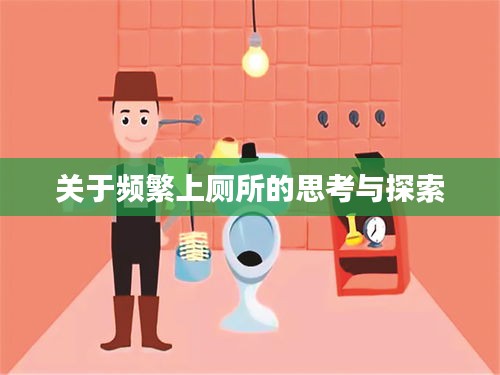Title: "The Global Challenge of Air Pollution: Causes, Effects, and Solutions"
Title: "The Global Challenge of Air Pollution: Causes, Effects, and Solutions"
Air pollution has become one of the most pressing environmental issues of our time, affecting millions of people worldwide. The rapid industrialization, urbanization, and population growth have contributed to the escalating levels of air pollution, posing significant health risks and economic challenges. This article aims to explore the causes, effects, and potential solutions to this global problem.
I. Causes of Air Pollution
- Industrial Emissions
The industrial sector is a major contributor to air pollution. Factories and power plants emit harmful pollutants, such as sulfur dioxide (SO2), nitrogen oxides (NOx), and particulate matter (PM), which can cause respiratory and cardiovascular diseases.
- Transportation
The transportation sector is another significant source of air pollution. Vehicles, especially those powered by fossil fuels, emit pollutants such as carbon monoxide (CO), nitrogen oxides (NOx), and volatile organic compounds (VOCs). The rapid increase in the number of vehicles on the road has exacerbated the problem.
- Agricultural Activities
Agricultural activities, such as livestock farming and rice cultivation, contribute to air pollution through the release of methane (CH4) and nitrous oxide (N2O), which are potent greenhouse gases. Additionally, the use of fertilizers and pesticides can lead to the emission of ammonia (NH3) and other harmful substances.
- Waste Management
Improper waste management practices, such as open burning and landfilling, release harmful pollutants into the air. These pollutants include dioxins, furans, and particulate matter, which can cause serious health issues.
II. Effects of Air Pollution
- Health Impacts
Air pollution has a significant impact on human health. Exposure to pollutants can lead to respiratory and cardiovascular diseases, such as asthma, bronchitis, and heart attacks. Children and the elderly are particularly vulnerable to the adverse effects of air pollution.
- Economic Costs
The economic costs associated with air pollution are substantial. The healthcare system bears the brunt of treating pollution-related diseases, while productivity losses due to sick leave and premature deaths further strain the economy.
- Climate Change
Air pollutants, such as carbon dioxide (CO2), methane (CH4), and nitrous oxide (N2O), are greenhouse gases that contribute to climate change. The increase in global temperatures has severe consequences, including extreme weather events, rising sea levels, and the loss of biodiversity.
III. Solutions to Air Pollution
- Regulatory Measures
Governments can implement strict regulations on industrial emissions, vehicle emissions, and agricultural practices. These regulations can include emission standards, pollution taxes, and subsidies for clean technologies.
- Clean Energy Transition
Transitioning to renewable energy sources, such as solar, wind, and hydroelectric power, can reduce the reliance on fossil fuels and lower air pollution levels. Investing in clean energy infrastructure is crucial for a sustainable future.
- Public Transportation and Electric Vehicles
Promoting public transportation and encouraging the use of electric vehicles can reduce the number of vehicles on the road and lower air pollution. Governments can provide incentives for electric vehicle adoption, such as tax breaks and rebates.
- Sustainable Agriculture
Encouraging sustainable agricultural practices, such as precision farming and the use of organic fertilizers, can reduce the emission of harmful pollutants. Additionally, promoting livestock farming methods that minimize methane emissions is essential.
- Waste Management
Improving waste management practices, such as recycling, composting, and proper disposal of hazardous waste, can reduce air pollution. Educating the public on sustainable waste management is also crucial.
In conclusion, air pollution is a global challenge that requires urgent attention. By addressing the causes, understanding the effects, and implementing effective solutions, we can work towards a cleaner, healthier future for all. It is essential for governments, industries, and individuals to collaborate and take responsibility for reducing air pollution and protecting our planet.
Title: "Real-Time Traffic Monitoring: Enhancing Urban Mobility with Advanced Technologies"
Title: "Global Gourmet: Exploring the Trending Food Topics of Today"
Title: "Rainy Weather Alert: Navigating the Downpour with Real-Time Updates"
Title: "COVID-19 Real-Time Updates: Global Pandemic Dynamics and Latest Developments"
Title: "Mastering the Art of Advertising: Top Hot Advertising Cases Analyzed"
Title: "Navigating the Fast-Paced World: Embracing the Real-Time Dynamics"
Title: "Where to Pay Mobile Phone Bills in Real-Time: A Comprehensive Guide"
Unlocking the Power of Real-Time Stock Data: Understanding the Abbreviation
转载请注明来自北京凯建昌盛工程技术有限公司,本文标题:《Title: "The Global Challenge of Air Pollution: Causes, Effects, and Solutions"》












 京ICP备19050683号-2
京ICP备19050683号-2